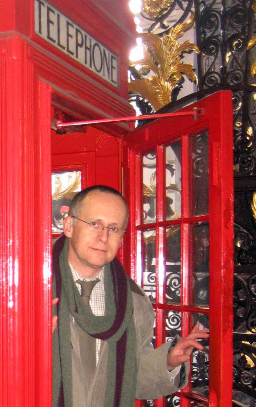
Not necessarily, says Ted Nield
Geoscientist 20.10 October 2010
Here’s a truly scary thought – human beings are NOT responsible for Climate Change.
There is comfort to be had in the notion that we are responsible for things – such as the climate change we know is happening on Earth. After all, that gives us a chance of doing something about it. The alternative, that climate change is being done to us by the sun and the climate system, acting under their own innate inexorable mechanisms, is surely much more frightening because it renders us helpless.
Now beware - believing things because they are comfortable is dangerous. No scientist should ever drop his or her guard against believing through faith, or fall victim to the notion that an idea is simply too awful to entertain. But for reasons of practical policy, we should now recognise that the probability of our being responsible for most of the measured warming of the last century stands at well over 90%, and should be accepted by everyone, everywhere, as fact.
But climate scientists have come in for much public criticism of late. First, keen-eyed sceptics discovered some rather trivial but highly embarrassing errors in the IPCC’s latest Assessment Report. Then came the leaked emails from the Climate Research Unit at the University of East Anglia. “Climategate”, as it became known, became the subject of three separate inquiries (by the House of Commons Science & Technology Committee, the Royal Society Scientific Assessment Panel, chaired by former President Lord Oxburgh, and the Independent Climate Change Emails Review). And all they found was that climate scientists were guilty of nothing worse than innocence.
It is understandable that UEA scientists felt reluctant to comply with requests from self-styled “sceptics”, but it was to say the least unwise to refuse them. For a start, to do so would be unlawful. For another, caginess made them look guilty and so handed their opponents a more powerful weapon than any in their own arsenal. Finally, believing they could get away with it betrayed the sort of innocence that beggars belief. If it weren’t all so serious, one could almost find it touching.
Innocence by contrast is not something of which one can accuse climate-change denyers. Like those before them who scattered the chaff of doubt over the link between smoking and cancer, they are as strong in the dark side of public relations and media management as scientific institutions are (usually) weak. Little wonder - it is their primary purpose and they are backed by powerful interests. Of course they’re good at it.
Meanwhile the media suffer pressures of their own - the most dangerous being the need always to have news. Scientific consensus changes rarely and slowly. But denialists can come up with news easily because, being unconstrained by evidence they can construct any number of simple (and suspiciously agreeable) messages whenever they like.
The answer to this is plain. Science too needs the arts of persuasion - and therefore requires the help of trained professionals. Cheap, DIY solutions will simply pack the babes off into the wood, carrying a loaded gun.